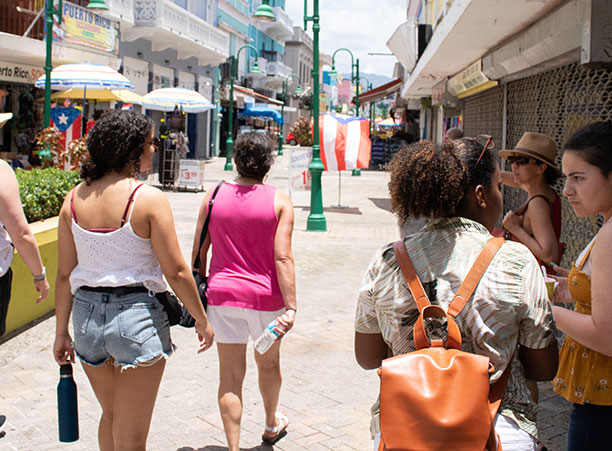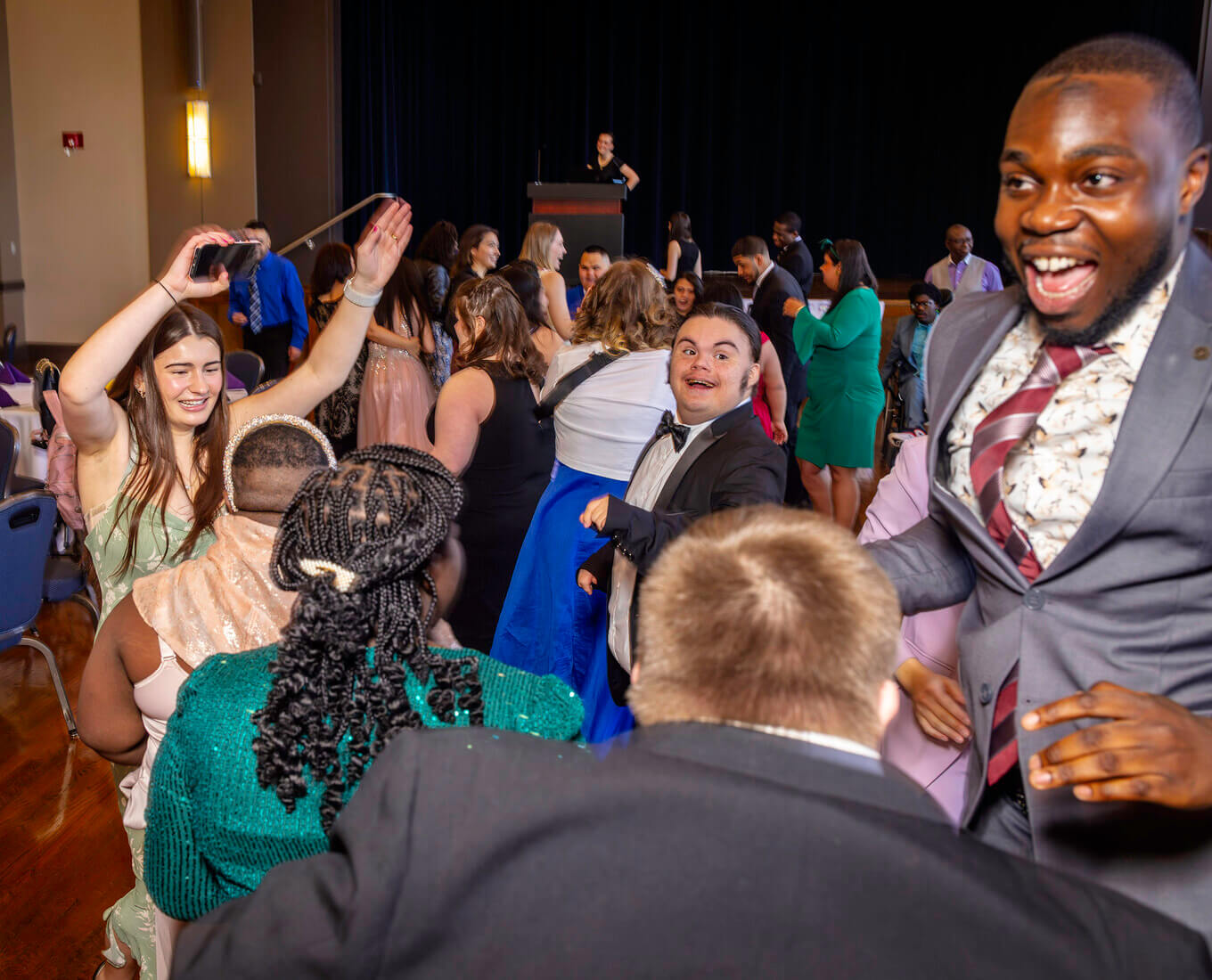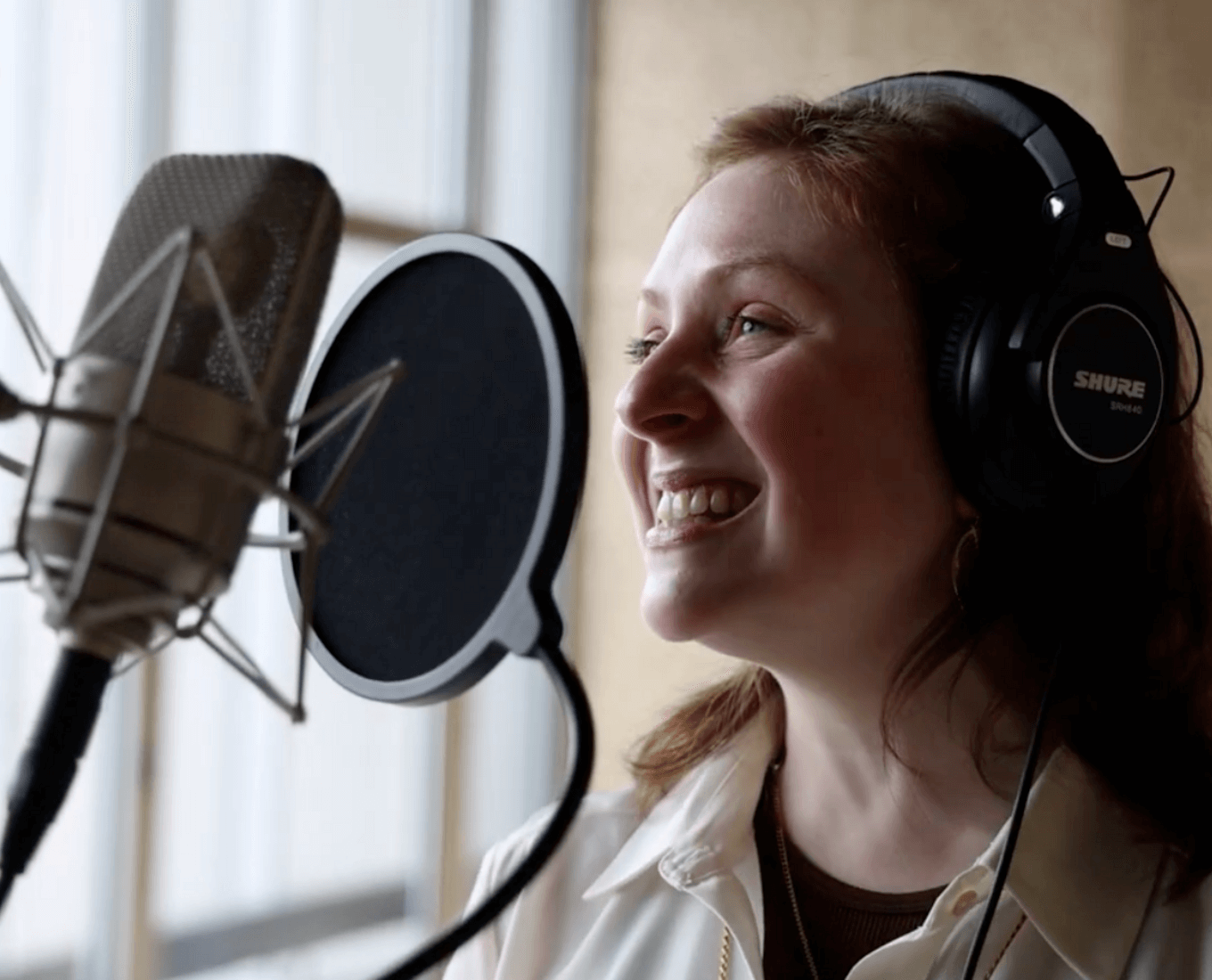
It's one thing to study the effects of a hurricane in a classroom setting, learning about the biology behind the devastation or the history of the country it hit. It's a whole other ballgame to visit the place you've been talking about and see the effects firsthand. And that's exactly what 11 students from the combined courses "Microbiology of a Hurricane" and "America's Colony" did.
Madeline Vargas, professor of biology, and Rosa Carrasquillo, professor of history, took the group of students on a five-day study trip to the island of Puerto Rico. There, they ventured far beyond the usual sun and sea holiday to meet and work alongside grassroots organizations making an impact in recovery from 2017's devastating Hurricane Maria.
"Instead of hearing about issues from a textbook or professor, we were hearing them from the people who were living through them," says Katherine O'Malley '21, a biology major with a concentration in Latin American, Latinx and Caribbean Studies. "Particularly, hearing the stories from people about how they made it through Hurricane Maria was much more powerful than anything I could have read. Everyone was so willing to share and talk to people they had just met about such difficult times in their lives."
On the itinerary: Students toured a self-sustaining farm in the mountains, installed drainage in an urban community garden and helped plant coconuts on the beach as part of an organization called Coconut Revolution. They also met with young activists who've rehabbed formerly abandoned buildings in Caguas, a hard-hit city 20 minutes south of San Juan, and created a soup kitchen and other community spaces.
Students hit the ground well prepared to look at the complex intersection of health, politics and public policy given the way the coursework was structured. While they enrolled in one of the two classes, they also met jointly with their course counterparts six or so times throughout the semester.
Carrasquillo urged to her students, United States citizens, the importance of learning about Puerto Rico and its relationship with the United States. "It's their history, too," she says. "Most people do not want to know it or don't care about knowing it, but it's part of that history, right? No one is going to be proud of the history of colonialism, and so it's easier to ignore it and to intentionally not to learn about it. For instance, in class, it was easy for students to think about solutions where Puerto Ricans were completely ignored. They were challenged not to ignore Puerto Ricans."
Students found the mix challenging — and intriguing. "One way we found common ground was by reading articles surrounding diseases from older scientific journals," says O'Malley.
"Students from microbiology read with a scientific lens and investigated the microbe and its properties, while history students were able to place the article into a broader context and see what was happening at the time it was published. It was really cool to see the different perspectives coming together when met together."
Going from classroom to on-the-ground meetings brought the impact to life. "When we toured a university, we saw a graduate student giving a PowerPoint slide show on hurricane damage," says Vargas. "She had to stop several times because she was very emotional, and she just kept saying, 'I haven't seen these pictures since it happened, I took them and I didn't want to look at them.' You don't see that in the news."
That mission to go beyond what's reported drove the learning both before and during the trip.
"One of the things that became very evident for students, I hope, was that Maria was just another crisis, right?" Carrasquillo says. "The context of Maria's devastation was the financial crisis of a public debt of over 74 billion dollars. This financial crisis is still more damaging to most Puerto Ricans today. As we walked around the University of Puerto Rico, for instance, we can see how all the libraries, the satellite libraries were closed — all of them. The bookstore was closed and then when we went through the tour of the town, we saw more of the economic devastation. It's really surreal; it looked like a bomb went off."
"You can't teach that," Vargas added.
And the impact carried back to campus. "Sometimes it is easy to compare myself to what the majority of other people have and what I don't," says Sienna Ablorh '21, a history and psychology double major with a concentration in Africana Studies. "But, seeing that people went without electricity, clean water and gas for so long after Hurricane Maria reminded me that I too, am privileged."
Ablorh was surprised at how much information about Hurricane Maria she didn't know.
"People were willing to share to help educate me in a way where it was empowering and I didn’t feel bad for not knowing. There were misreported things following the hurricane, and some things weren't even reported at all; so it was hard for an outsider to fully know everything. But, everyone who survived had a story to tell and a lesson to learn from."
Students Travel to Puerto Rico to Study the Effects of Hurricane Maria
The students spent a week working with local grassroots organizations and linking their microbiology and history coursework to firsthand experiences
Read Time
4 Minutes


